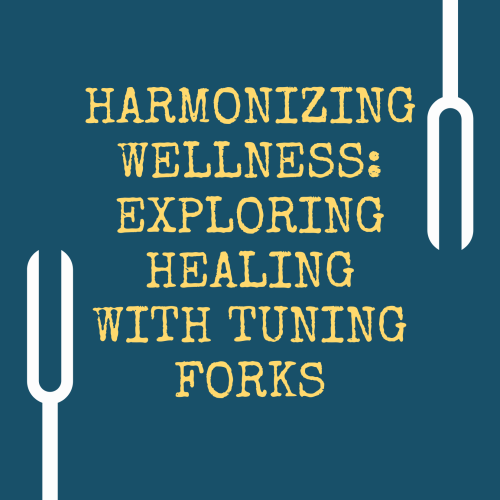
452 posts
Embracing The Miraculous: "I Am Fearfully And Wonderfully Made"Shaina TranquilinoMarch 28, 2024
Embracing the Miraculous: "I Am Fearfully and Wonderfully Made" Shaina Tranquilino March 28, 2024

It's easy to lose sight of the profound truth embedded in the ancient words, "I am fearfully and wonderfully made." These words, drawn from the pages of sacred scriptures, carry a timeless message of self-worth and divine craftsmanship. In this blog post, we'll explore the depth and significance of this powerful affirmation and discover how embracing our inherent worth can lead to a life filled with purpose, gratitude, and self-love.
Understanding the Origin: The phrase "I am fearfully and wonderfully made" is found in the Bible, specifically in Psalm 139:14. This verse reflects on the intricate process of creation, acknowledging the divine craftsmanship that goes into forming each individual. It serves as a reminder that our existence is not a random occurrence but a purposeful design by a higher power.
Exploring the Depth of Fearfully and Wonderfully Made: Fearfully Made:
The term "fearfully" in this context does not imply a sense of terror or anxiety but rather reverence and awe. It speaks to the meticulous care and intentionality with which each person is crafted.
Understanding that we are fearfully made encourages us to appreciate the complexity of our physical, emotional, and intellectual beings. Every detail of our existence is purposefully designed.
Wonderfully Made:
The word "wonderfully" emphasizes the extraordinary nature of our creation. It invites us to marvel at the uniqueness inherent in each individual.
Recognizing that we are wonderfully made encourages a celebration of our individuality. Our strengths, weaknesses, and quirks collectively contribute to the masterpiece that is our life.
Embracing Self-Worth: Unshackling from Comparison:
The constant comparison to societal ideals can lead to feelings of inadequacy. Embracing the truth that we are fearfully and wonderfully made frees us from the chains of comparison.
Each person's journey is distinct, and our differences contribute to the rich tapestry of humanity.
Cultivating Gratitude:
Gratitude for our existence and the intricate details of our being transforms our perspective on life. By acknowledging the divine hand behind our creation, we develop a sense of appreciation for the gift of life.
Gratitude becomes a powerful tool for fostering contentment and resilience, even in the face of challenges.
Nurturing Self-Love:
Embracing the truth of being fearfully and wonderfully made lays the foundation for self-love. It encourages us to treat ourselves with kindness, compassion, and acceptance.
When we recognize our inherent worth, we become better equipped to navigate life's complexities with resilience and a positive mindset.
"I am fearfully and wonderfully made" is not merely a religious affirmation; it is a timeless truth that resonates across cultures and beliefs. Understanding the depth and significance of this statement can transform the way we perceive ourselves and others. By embracing our inherent worth, we embark on a journey of self-discovery, gratitude, and self-love, unlocking the door to a more fulfilling and purposeful life.
More Posts from Harmonyhealinghub
I Am God's Masterpiece: Embracing the Beauty Within Shaina Tranquilino March 25, 2024

We are often bombarded with messages of inadequacy and self-doubt, it's crucial to remind ourselves of our inherent worth and beauty. As individuals, we are unique and intricate creations, each with our own set of strengths, quirks, and talents. "I am God's Masterpiece" serves as a powerful affirmation that echoes the idea that we are divinely crafted with purpose and intention. In this blog post, we'll explore the depth and significance of this statement, encouraging readers to embrace their true selves and recognize the beauty within.
Understanding the Concept:
The phrase "I am God's Masterpiece" is rooted in the belief that there is a higher power, a divine creator, who crafted each individual with care and purpose. This concept can be found in various religious and spiritual teachings that emphasize the idea of being fearfully and wonderfully made. Regardless of one's religious beliefs, the core message remains universal: each person is a unique masterpiece, a work of art crafted by a higher intelligence.
Embracing Individuality:
One of the key aspects of recognizing oneself as God's masterpiece is acknowledging and celebrating individuality. Just as no two pieces of art are identical, no two individuals are exactly the same. Our differences, whether physical, emotional, or intellectual, contribute to the rich tapestry of humanity. Embracing these distinctions allows us to appreciate the diversity that makes each person a one-of-a-kind masterpiece.
Overcoming Insecurities:
In a world that often places unrealistic standards on beauty, success, and happiness, many individuals grapple with insecurities. The affirmation "I am God's Masterpiece" serves as a powerful antidote to these feelings of inadequacy. By recognizing our inherent value, we can challenge societal norms and redefine our self-worth based on our uniqueness rather than conforming to external expectations.
Finding Purpose:
Understanding that we are God's masterpiece also implies that there is a purpose behind our existence. Whether through personal growth, relationships, or contributions to the world, each individual has a role to play in the grand design of life. By tapping into our passions and talents, we can align ourselves with our purpose and experience a sense of fulfillment and meaning.
Practical Steps for Self-Reflection:
To internalize the affirmation "I am God's Masterpiece," it's essential to engage in regular self-reflection. This may involve practices such as journaling, meditation, or seeking guidance from spiritual mentors. By taking the time to understand our strengths, weaknesses, and aspirations, we can develop a deeper connection with our true selves.
"I am God's Masterpiece" is a profound statement that transcends religious and spiritual boundaries, emphasizing the inherent value and beauty within each individual. By embracing our uniqueness, overcoming insecurities, and aligning with our purpose, we can live authentically and contribute positively to the world around us. Let this affirmation be a guiding light, reminding us all that we are, indeed, fearfully and wonderfully made.
The Harmonious Symphony: Exploring the Healing Power of Sound Shaina Tranquilino April 7, 2024

In the fast-paced rhythm of modern life, it's easy to overlook the significance of sound in our overall well-being. Yet, throughout history and across cultures, sound has been revered for its profound ability to heal, restore balance, and uplift the spirit. From the chanting of monks to the soothing melodies of a lullaby, sound has long been recognized as a potent force in promoting healing and inner harmony.
Sound healing, also known as sound therapy or sonic therapy, is a holistic practice that harnesses the power of sound vibrations to promote physical, emotional, and spiritual well-being. Dating back thousands of years, sound has been used in various forms – including chanting, drumming, singing bowls, and tuning forks – to induce relaxation, alleviate stress, and stimulate healing processes within the body.
At its core, sound healing operates on the principle of resonance, the natural tendency of objects to vibrate in sympathy with external frequencies. Every cell, tissue, and organ in the human body has its own unique vibrational frequency. When these frequencies become imbalanced or disrupted due to stress, illness, or negative emotions, it can lead to dissonance and disharmony within the body-mind complex.
Sound healing seeks to restore balance and alignment by introducing harmonious frequencies that resonate with the body's natural rhythms. Through the use of specific sounds and frequencies, sound healers aim to entrain the body's vibrational frequencies, facilitating a state of deep relaxation and promoting self-healing mechanisms.
One of the most widely recognized tools in sound healing is the Tibetan singing bowl. These ancient instruments, crafted from a blend of metals, produce rich, harmonic tones when struck or rubbed with a mallet. The soothing sounds emanating from singing bowls have been shown to induce a state of deep relaxation, reduce stress, and promote mental clarity.
Similarly, the human voice is a powerful instrument for sound healing. Whether through chanting, toning, or mantra recitation, vocal sound can be used to resonate with specific energy centers in the body, known as chakras, helping to release blockages and restore energetic balance.
In recent years, scientific research has begun to validate the efficacy of sound healing practices. Studies have shown that exposure to certain frequencies can have measurable effects on brainwave activity, hormone levels, and immune function. Moreover, sound therapy has been increasingly integrated into mainstream healthcare settings as a complementary treatment for conditions such as chronic pain, anxiety, and depression.
Beyond its physical benefits, sound healing also holds profound implications for our emotional and spiritual well-being. Sound has the ability to evoke deep emotions, unlock buried memories, and facilitate profound states of meditation and transcendence. Many practitioners report experiencing profound shifts in consciousness and heightened states of awareness during sound healing sessions.
In a world filled with noise and distraction, sound healing offers a sanctuary for inner stillness and reflection. Whether through the gentle resonance of a singing bowl or the ethereal chant of a mantra, sound has the power to transport us to a place of peace and wholeness within ourselves.
As we continue to explore the ancient wisdom of sound healing, may we rediscover the profound interconnectedness between sound, body, mind, and spirit. In the symphony of life, let us tune into the healing frequencies that resonate within us and embrace the transformative power of sound to awaken our true potential.
Courage: A Journey into the Heart of Fearlessness Shaina Tranquilino March 24, 2024

Courage is a beacon that guides us through the darkest moments of our lives, illuminating the path to self-discovery and resilience. In this blog post, we'll explore the profound concept of courage and how it manifests in our lives. As we navigate the complexities of our existence, it becomes evident that embracing courage is not merely an act but a way of being—a transformative journey that leads us to the heart of fearlessness.
The Essence of Courage:
Courage is often misunderstood as the absence of fear, but in reality, it is the ability to confront fear head-on and take action despite it. It is a force that propels us to step outside our comfort zones, challenge the status quo, and face uncertainty with unwavering determination.
The journey of courage begins within, as we confront our inner demons and doubts. It requires a profound self-awareness to acknowledge our fears and vulnerabilities. As we embrace our imperfections and acknowledge our fears, we open the door to courage.
Facing Fears:
Courageous individuals are not fearless; they simply refuse to be paralyzed by fear. They confront their fears with a resilience that turns obstacles into stepping stones. Whether it's pursuing a lifelong dream, standing up for what is right, or facing personal challenges, courage empowers us to move forward in the face of adversity.
One key aspect of facing fears is the acceptance of failure as a part of the journey. Courageous individuals understand that setbacks are not roadblocks but rather opportunities for growth. Each failure becomes a lesson, and with each lesson, courage is reinforced.
The Ripple Effect:
Courage is contagious. When one person demonstrates courage, it inspires others to do the same. Acts of courage create a ripple effect, fostering a culture of fearlessness and empowerment within communities, workplaces, and families. By sharing our stories of triumph over adversity, we not only inspire others but also create a supportive environment that encourages everyone to pursue their dreams and aspirations.
The Courage to Be Vulnerable:
Vulnerability is an integral part of courage. To be courageous is to be open to vulnerability, allowing oneself to be seen authentically. It involves expressing emotions, sharing struggles, and acknowledging the need for help when necessary. In doing so, we break down barriers and connect with others on a deeper, more meaningful level.
In a world filled with uncertainties and challenges, the journey to embrace courage is a transformative odyssey. It is a commitment to facing fears, embracing vulnerability, and persisting in the pursuit of one's truest self. By understanding that courage is not the absence of fear but the triumph over it, we unlock the doors to our fullest potential.
So, let us embark on this journey into the heart of fearlessness, embracing courage as a guiding light that leads us toward a life of purpose, authenticity, and resilience. Remember, within you lies the power to be courageous, to face your fears, and to emerge stronger on the other side.
Harmonizing Wellness: Exploring Healing with Tuning Forks Shaina Tranquilino April 12, 2024

In the vast symphony of holistic healing practices, tuning forks resonate as unique instruments, offering a melodious approach to wellness. Originating from ancient cultures and gaining modern recognition, the therapeutic use of tuning forks has surged in popularity. Let's embark on a journey to explore how these humble tools harness the power of sound to promote physical, emotional, and spiritual well-being.
The Science of Sound Healing: At its core, sound healing operates on the principle that everything in the universe, including our bodies, vibrates at specific frequencies. When these frequencies fall out of harmony, it can lead to dis-ease. Tuning forks, precision-calibrated instruments, emit pure frequencies that can recalibrate our body's natural vibrational state.
How it Works: When a tuning fork is struck against a surface, it produces a steady tone, vibrating at a specific frequency. When placed on or near the body, these vibrations travel through the body's tissues, influencing cellular rhythm and promoting balance. Each frequency corresponds to different aspects of our being, affecting physical, emotional, and spiritual realms.
Healing Benefits:
Stress Reduction: The gentle vibrations emitted by tuning forks help induce a state of deep relaxation, reducing stress and anxiety levels.
Pain Management: By stimulating the body's natural healing mechanisms, tuning forks can alleviate chronic pain and discomfort.
Emotional Release: Certain frequencies resonate with the emotional body, facilitating the release of stored emotions and promoting emotional well-being.
Enhanced Mental Clarity: Harmonizing frequencies can clear mental fog and improve focus and concentration.
Chakra Balancing: In Eastern medicine, it's believed that tuning forks can align and balance the body's energy centers (chakras), promoting overall vitality and balance.
Applications: Tuning forks find applications across various holistic practices:
Sound Therapy Sessions: Practitioners use tuning forks in individual or group sessions to promote healing and relaxation.
Massage Therapy: Incorporating tuning forks into massage sessions enhances the therapeutic effects, releasing tension and promoting deep relaxation.
Meditation and Yoga: Tuning forks can deepen meditative states and enhance the practice of yoga, fostering a deeper connection with the self and the universe.
Self-Care Practices: Individuals can use tuning forks for self-care rituals, promoting daily relaxation and stress relief.
In the bustling cacophony of modern life, finding moments of harmony and balance is essential for our well-being. Tuning forks offer a serene melody amidst the chaos, inviting us to tune into the healing frequencies of sound. Whether seeking relief from physical ailments, emotional turbulence, or simply striving for inner peace, the gentle vibrations of tuning forks resonate as a powerful tool for holistic healing. Embrace the symphony of wellness and let the soothing tones of tuning forks guide you on your journey to wholeness.
Embracing Generosity: A Year of Giving Back to Libraries Shaina Tranquilino April 3, 2024

As we welcome the dawn of a new year, many of us find ourselves reflecting on our lives, our goals, and the changes we hope to enact in the coming months. For some, it's a time to set resolutions aimed at personal growth, health, or career advancement. For others, like myself, it's an opportunity to embark on a journey of philanthropy and giving back to the community.
This year, I've made a heartfelt commitment to donate to a different organization each month, with the intention of supporting causes that resonate deeply with me and have a positive impact on the world around us. As April is here, I'm thrilled to announce that I've chosen to kickstart this initiative by dedicating my birthday month to supporting the Regina Public Library Board.
For me, libraries have always held a special place in my heart. As an avid reader and advocate for literacy, I firmly believe in the transformative power of libraries to educate, inspire, and empower communities. They serve as beacons of knowledge and enlightenment, offering a wealth of resources, programs, and services that benefit people of all ages and backgrounds.
By donating to this fundraiser, you'll have a direct hand in enhancing library resources, expanding educational programs, and bolstering services that are vital to the well-being of our community. Your generosity will help foster a love for learning, provide equitable access to information, and create a welcoming space for everyone to explore new worlds through the pages of a book.
But it's more than just books on shelves or quiet reading corners. Libraries are dynamic hubs of activity, where people come together to learn, connect, and grow. From early literacy programs for children to technology training for seniors, from cultural events to job search assistance, libraries offer something for everyone, regardless of their circumstances.
Your contribution, no matter how big or small, will make a difference. Whether it's funding new acquisitions for the library's collection, supporting innovative programming initiatives, or improving facilities to better serve patrons, every dollar counts. Together, we can ensure that our library remains a vibrant and indispensable resource for generations to come.
So, I invite you to join me in giving back to this vital institution that enriches lives and strengthens our community. Together, let's celebrate the joy of reading, the power of knowledge, and the profound impact of generosity. Together, let's make a difference, one book at a time. https://www.facebook.com/donate/1168295377400257/